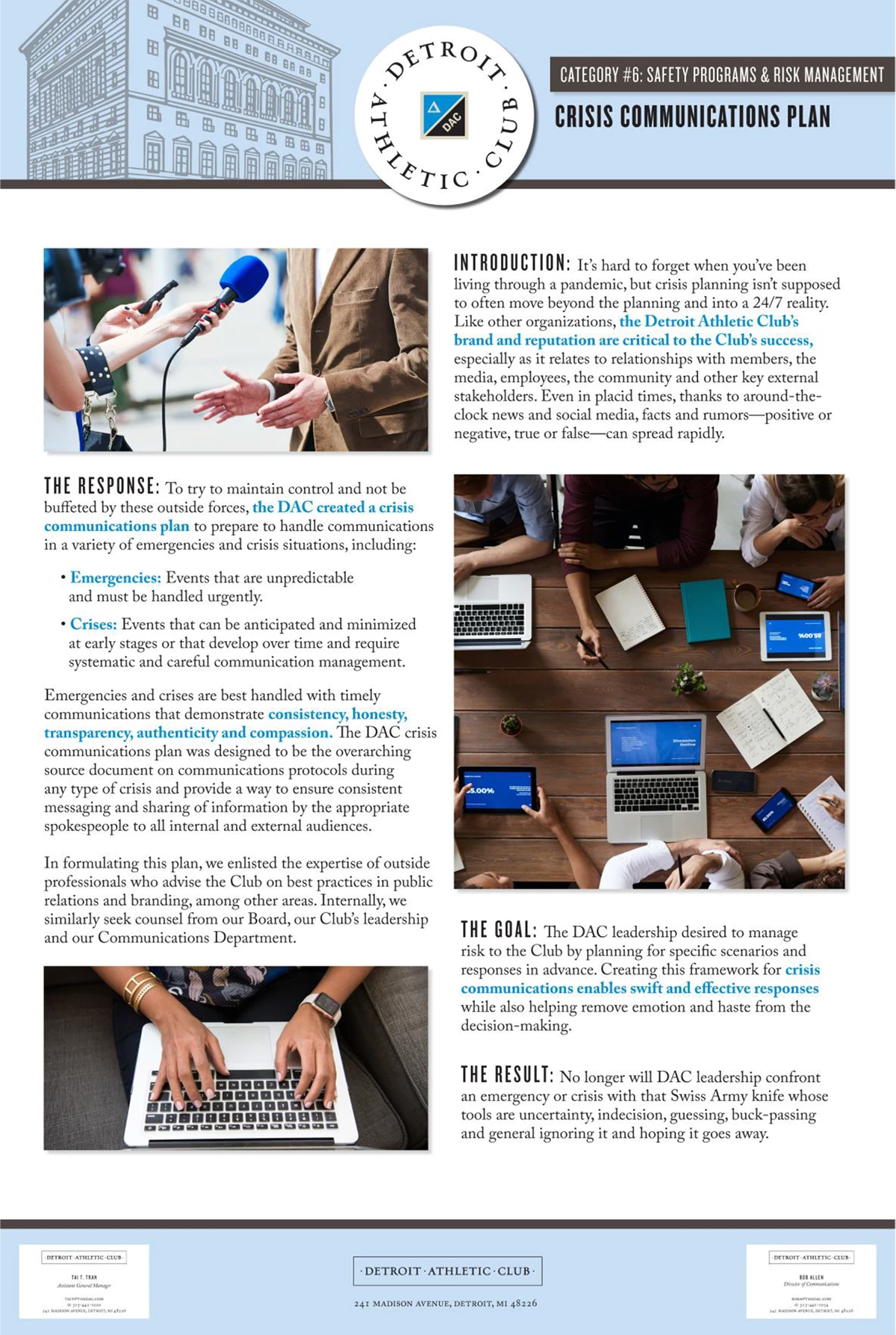Idea Fair
Crisis Communications Plan
How has this idea enhanced your club's operation, etc.?
INTRODUCTION: It’s hard to forget when you’ve been living through a pandemic, but crisis planning isn’t supposed to often move beyond the planning and into a 24/7 reality.
Like other organizations, the Detroit Athletic Club’s brand and reputation are critical to the Club’s success, especially as it relates to relationships with members, the media, employees, the community and other key external stakeholders. Even in placid times, thanks to around-theclock news and social media, facts and rumors—positive or negative, true or false—can spread rapidly.
How was this idea implemented, and what have been the club members' reactions?
THE RESPONSE: To try to maintain control and not be buffeted by these outside forces, the DAC created a crisis communications plan to prepare to handle communications in a variety of emergencies and crisis situations, including:
- Emergencies: Events that are unpredictable and must be handled urgently.
- Crises: Events that can be anticipated and minimized at early stages or that develop over time and require systematic and careful communication management.
Emergencies and crises are best handled with timely communications that demonstrate consistency, honesty, transparency, authenticity and compassion. The DAC crisis communications plan was designed to be the overarching source document on communications protocols during any type of crisis and provide a way to ensure consistent messaging and sharing of information by the appropriate spokespeople to all internal and external audiences.
In formulating this plan, we enlisted the expertise of outside professionals who advise the Club on best practices in public relations and branding, among other areas. Internally, we similarly seek counsel from our Board, our Club’s leadership, and our Communications Department.
THE GOAL: The DAC leadership desired to manage risk to the Club by planning for specific scenarios and responses in advance. Creating this framework for crisis communications enables swift and effective responses while also helping remove emotion and haste from the decision-making.
THE RESULT: No longer will DAC leadership confront an emergency or crisis with that Swiss Army knife whose tools are uncertainty, indecision, guessing, buck-passing and general ignoring it and hoping it goes away.


About the author
Tai Tran